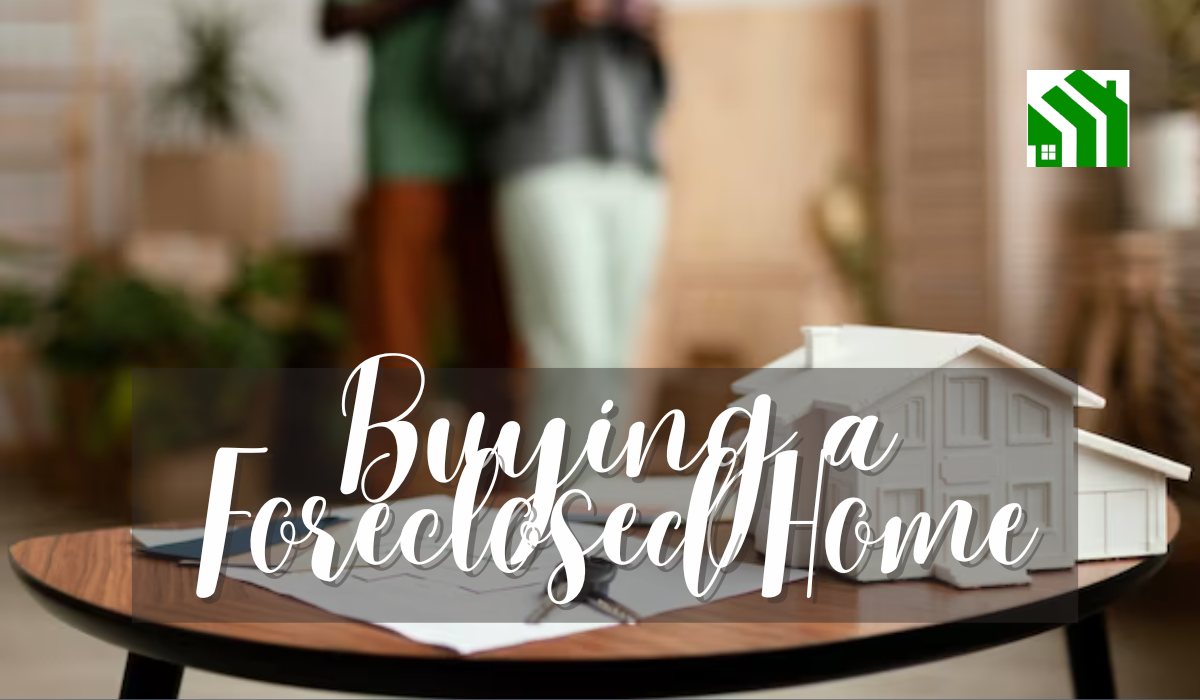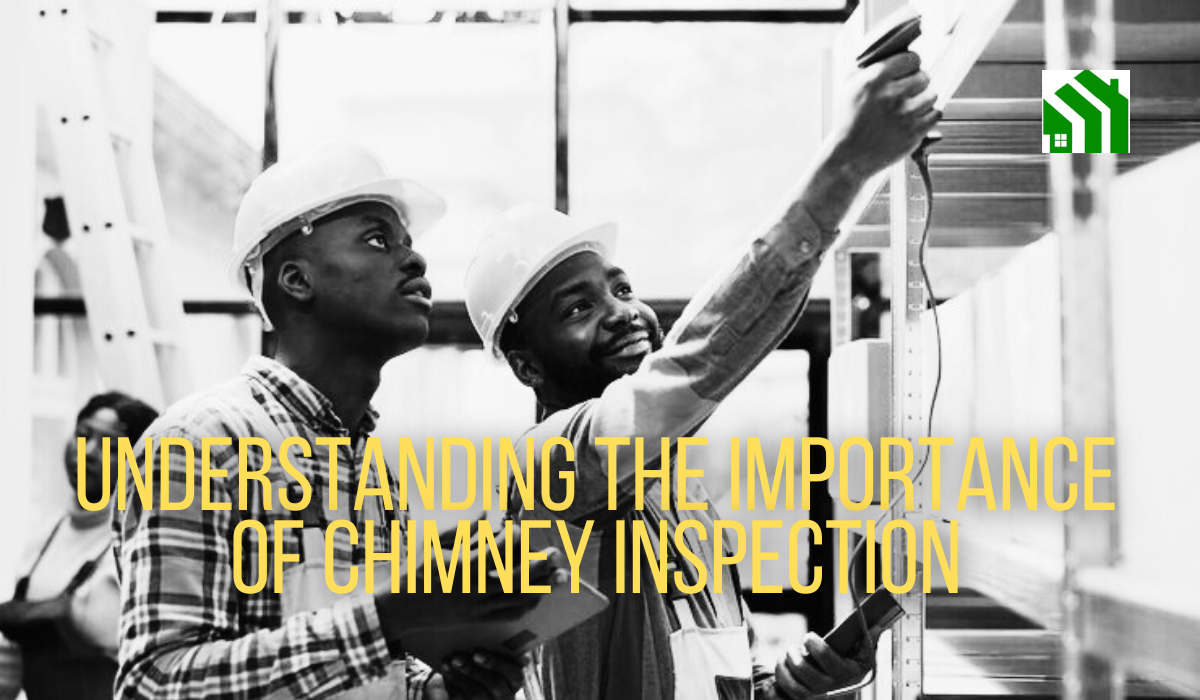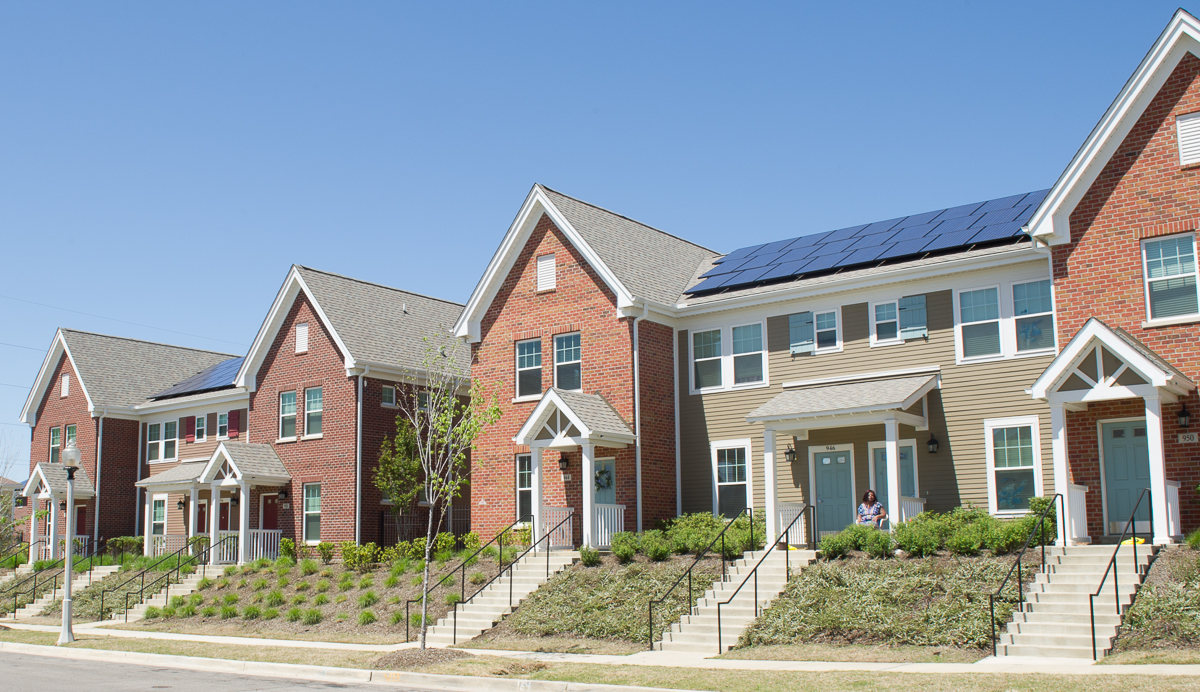Foreclosed homes, often a topic of intrigue for potential buyers, represent a unique opportunity in the real estate market.
These properties have undergone a legal process resulting in the lender or bank taking ownership, creating a distinctive path for buyers. This article aims to provide a comprehensive guide on buying a foreclosed home, outlining the advantages, risks, and key steps to consider.
What is a Foreclosed Home?

A foreclosed home, also known as a foreclosure property, is a residential property that has undergone a legal process resulting in the lender or financial institution taking ownership due to the homeowner’s inability to meet the mortgage payments.
This situation arises when the homeowner defaults on their mortgage, leading to a series of events that ultimately result in the lender repossessing the property. Understanding the intricacies of foreclosed homes is vital for anyone considering entering this unique segment of the real estate market.
The Foreclosure Process
The foreclosure process typically consists of several stages:
1. Missed Payments
Foreclosure proceedings often start when the homeowner falls behind on their mortgage payments. Lenders generally provide a grace period for payments, but once several payments are missed, the process begins.
2. Notice of Default
After missed payments, the lender issues a Notice of Default (NOD), which is a formal notice to the homeowner, alerting them that they are in breach of the mortgage agreement. This document marks the official beginning of the foreclosure process.
3. Pre-Foreclosure
During the pre-foreclosure period, homeowners have an opportunity to resolve their delinquency by catching up on payments, selling the property, or negotiating with the lender to find an alternative solution, such as loan modification.
4. Foreclosure Auction
If the homeowner is unable to resolve the delinquency, the property enters the foreclosure auction phase. In some cases, the property is auctioned off to the highest bidder, and in others, it becomes “Real Estate Owned” (REO) property owned by the lender.
5. Real Estate Owned (REO)
In the REO phase, the property becomes the possession of the lender. The lender will often work to sell the property to recoup their losses.
Distinctive Features of Foreclosed Homes
Foreclosed homes often have several distinctive features:
1. Potential Cost Savings
One of the primary attractions of foreclosed properties is their potential for cost savings. Lenders are typically motivated to sell these homes quickly, which can lead to prices below the market value.
2. Varied Condition
Foreclosed homes are commonly sold in an “as-is” condition, meaning that they may require repairs and renovations. Buyers should be prepared to invest time and money in bringing the property up to their standards.
3. Limited Seller Disclosure
Unlike traditional home sales, foreclosed properties often come with limited information about the property’s history and condition. Buyers may need to conduct thorough inspections and investigations to assess the property’s true state.
4. Investment Opportunities
Foreclosed homes can also present investment opportunities. Investors can purchase these properties, make necessary improvements, and either resell them for a profit or use them as rental income sources.
A foreclosed home is a property that has been repossessed by a lender due to the homeowner’s inability to meet mortgage payments. The foreclosure process involves various stages, from missed payments to the potential auction of the property.
Buyers considering foreclosed homes should be aware of the potential cost savings, the varied condition of these properties, limited seller disclosure, and the investment possibilities they offer. Understanding the complexities of the foreclosure process and the unique characteristics of these homes is crucial for making informed decisions when considering the purchase of a foreclosed property.
What are the Loan Programs for Homebuyers?

Entering the realm of homeownership can be both exciting and overwhelming, especially when it comes to navigating the world of home loans. Understanding the available loan programs is crucial for prospective homebuyers. In this straightforward guide, we’ll demystify the complexities of home loans, breaking down key programs in simple terms.
FHA Loans: Your Entry Ticket to Homeownership
Federal Housing Administration (FHA) loans are designed with first-time homebuyers in mind. They offer lower down payment requirements, often as low as 3.5%, making homeownership more accessible. FHA loans also have more flexible credit score requirements, catering to those with varying credit histories.
VA Loans: Honoring Those Who Served
For eligible veterans and active-duty military personnel, VA loans provide an excellent opportunity to secure a home without a down payment. These loans, backed by the U.S. Department of Veterans Affairs, often come with competitive interest rates and relaxed credit standards.
Conventional Loans: Versatility in Home Financing
Conventional loans are not backed by government agencies, offering a flexible option for homebuyers with strong credit and financial stability. They come in various terms, including fixed-rate and adjustable-rate options, providing versatility to meet diverse financial needs.
USDA Loans: Rooted in Rural Homeownership
United States Department of Agriculture (USDA) loans are tailored for homebuyers in rural and suburban areas. With low-income requirements and the possibility of zero down payment, USDA loans aim to promote homeownership in less densely populated regions.
Down Payment Assistance Programs: Bridging the Affordability Gap
Many homebuyers face the challenge of accumulating a substantial down payment. Down payment assistance programs, available through state and local agencies, provide financial support to eligible buyers, making homeownership more achievable.
What are the Benefits of Buying a Foreclosed Home?

When it comes to real estate, foreclosed homes offer a unique set of advantages for potential buyers. Understanding these benefits can help you make an informed decision when considering the purchase of a foreclosed property.
Here are some key advantages:
1. Cost Savings
One of the most prominent benefits of buying a foreclosed home is the potential for significant cost savings. These properties are often priced below their market value.
The reason for this is that lenders are primarily interested in recovering their outstanding loan balance, rather than making a profit on the sale. As a result, buyers can acquire a property for a lower price than they would in a traditional real estate transaction.
2. Investment Opportunity
Foreclosed homes can be an attractive option for real estate investors. With the right approach, these properties can turn into profitable investments. Investors often purchase foreclosed homes, renovate or improve them, and then either rent them out or sell them at a higher price. This approach can provide a source of rental income or capital gains.
3. Potential for Equity
Purchasing a foreclosed home can offer the potential for built-in equity. Equity refers to the difference between the property’s current market value and the amount paid for it.
Since foreclosed homes are typically priced below market value, buyers may acquire a property with inherent equity. Over time, as the property’s value appreciates, this equity can increase, providing the potential for financial gain when reselling the home.
4. Negotiation Flexibility
In some cases, lenders may be more flexible in negotiating the terms of the sale of a foreclosed property. This flexibility can offer buyers opportunities to secure a more favorable deal, such as lower down payments or financing options. However, the level of flexibility can vary depending on the lender and the local real estate market conditions.
5. Diverse Inventory
The inventory of foreclosed homes can vary significantly. It includes a range of property types, from single-family homes to condos, townhouses, and even luxury estates. This diversity allows buyers to explore different options and find a property that suits their needs and preferences.
6. Quick Acquisition
Foreclosed properties are often available for a relatively quick acquisition compared to traditional real estate transactions. Since lenders are motivated to sell these properties, the process can move swiftly, making it appealing for buyers who want to secure a property in a timely manner.
Buying a foreclosed home presents several benefits, including cost savings, investment opportunities, the potential for built-in equity, negotiation flexibility, a diverse inventory of property types, and a relatively quick acquisition process.
However, it’s important to balance these advantages with an understanding of the risks and complexities involved, as discussed in subsequent sections of this guide. Careful research and consideration are essential for making a successful and informed purchase of a foreclosed property.
Risks of Buying a Foreclosed Home

While there are definite advantages to purchasing foreclosed homes, it’s equally important to consider the potential risks and challenges involved in this type of real estate transaction. Understanding these risks will help you make an informed decision. Here are some of the key risks associated with buying a foreclosed home:
1. As-Is Condition
Foreclosed homes are typically sold in an “as-is” condition, meaning that the buyer takes the property in its current state. The property may have been neglected, poorly maintained, or even damaged. As a buyer, you must be prepared to invest time and money in repairing and renovating the property to meet your standards. These costs can sometimes outweigh the initial price savings.
2. Limited Information
When purchasing a foreclosed home, you often have limited access to information about the property’s history and condition. Unlike traditional real estate transactions, where sellers provide comprehensive disclosures, foreclosed properties may come with incomplete or unavailable information. This lack of information can make it challenging to assess the true state of the property.
3. Competitive Bidding
In some cases, foreclosed homes are sold at auction. Bidding in such auctions can be highly competitive, with multiple buyers vying for the same property. This competition can drive up the price, potentially reducing the cost savings that initially attracted you to foreclosed properties.
4. Hidden Costs
Beyond the purchase price, foreclosed properties may come with hidden costs. These could include outstanding liens or taxes that the new owner is responsible for settling. You may also need to budget for property inspections, renovations, and other unforeseen expenses.
5. Complex Legal Processes
Navigating the legal aspects of purchasing a foreclosed home can be intricate. The foreclosure process involves various legal procedures, and there may be complications related to the title, ownership, or any potential legal disputes. Consulting with legal experts is advisable to ensure a smooth and legally sound transaction.
6. Unpredictable Condition
Foreclosed properties often experience long periods of vacancy and neglect. This can result in unpredictable property conditions, including damage from neglect, vandalism, or environmental factors. Comprehensive property inspections are essential to identify and address these issues.
7. Emotional Attachment
Sometimes, foreclosed homes were once the residences of families or individuals who faced financial hardships. The emotional attachment or history associated with these properties can present challenges for buyers when negotiating or making decisions about necessary renovations.
In summary, while buying a foreclosed home offers potential cost savings and investment opportunities, it comes with notable risks. These risks include the “as-is” condition, limited information about the property, competitive bidding, hidden costs, complex legal processes, unpredictable property conditions, and potential emotional attachments. It’s crucial for prospective buyers to conduct thorough research, work with experienced real estate professionals, and carefully assess the specific circumstances of each foreclosed property to mitigate these risks and make an informed purchase decision.
Key Steps to Buying a Foreclosed Home

Purchasing a foreclosed home can be a rewarding endeavor, but it requires a strategic approach and careful planning. To guide you through the process, here are key steps to consider when buying a foreclosed property:
1. Research
Before you begin your search for a foreclosed home, it’s essential to conduct thorough research. Start by understanding the local real estate market and the prevalence of foreclosed properties in your area. This knowledge will help you identify potential opportunities and make informed decisions.
2. Secure Financing
Before you embark on your search, secure your financing. This step is crucial because it will enable you to determine your budget and make you a more attractive buyer to lenders and sellers. You can choose to get pre-approved for a mortgage or have cash readily available.
3. Work with Real Estate Professionals
Collaborating with experienced real estate professionals, such as real estate agents, brokers, or attorneys, can be instrumental in navigating the complexities of buying a foreclosed home. These experts can provide guidance, access to listings, and expertise in negotiation and transaction management.
4. Property Inspection
Never skip the property inspection phase. Due to the “as-is” nature of foreclosed homes, it’s vital to thoroughly assess the property’s condition. Engage a qualified home inspector to identify any existing issues, repairs, or renovations required.
5. Making an Offer
When you find a foreclosed property that meets your criteria, you’ll need to make an offer. Offers for foreclosed homes can be submitted through a real estate professional or as part of an auction process, depending on the specific circumstances of the sale. Be sure to follow the rules and regulations set by the seller.
6. Legal and Financial Due Diligence
Consult with legal and financial experts to ensure you fully understand the legal aspects and potential financial implications of the purchase. This step is crucial to protect your interests and make sure you comply with all legal requirements.
7. Title Search
A thorough title search is essential to verify the property’s title and ensure there are no outstanding liens or legal disputes that could affect your ownership. This is typically a step conducted by professionals in real estate transactions.
8. Negotiation
Successful negotiation is a critical aspect of buying a foreclosed home. You may have an opportunity to negotiate the purchase price, terms, and other conditions with the lender or seller. An experienced real estate professional can guide you through this process.
9. Closing the Deal
Once your offer is accepted, you’ll proceed to the closing phase. During this stage, all the necessary legal documents are finalized, and ownership of the property is transferred. Be prepared to review and sign numerous documents, including the sales contract and mortgage paperwork.
10. Post-Purchase Renovations
After acquiring the foreclosed property, you may need to undertake necessary renovations or improvements to make the home habitable or to enhance its value. Budget and plan for these post-purchase expenses.
In summary, buying a foreclosed home involves a series of well-defined steps, starting with research and securing financing, working with real estate professionals, conducting property inspections, making offers, and undertaking legal and financial due diligence.
The process culminates in closing the deal and potentially carrying out post-purchase renovations. Careful execution of these steps, coupled with professional guidance, can help you navigate the unique challenges and opportunities of buying a foreclosed home and making a successful investment.
1. What is a Foreclosed Home?
A foreclosed home is a property seized by a lender due to non-payment of the mortgage, making it available for sale to recover the outstanding loan amount.
2. Why Consider Buying a Foreclosed Home?
Foreclosed homes often come with discounted prices, presenting a unique opportunity for buyers to acquire real estate at a more affordable rate.
3. How Can I Find Foreclosed Homes for Sale?
Foreclosed homes are listed on various platforms, including real estate websites, public auctions, and through real estate agents specializing in distressed properties.
4. Are Foreclosed Homes in Poor Condition?
While some foreclosed homes may require renovations, not all are in poor condition. It’s essential to conduct thorough inspections and assessments before making a purchase.
5. What Financing Options are Available for Foreclosed Homes?
Government-sponsored programs like FHA, VA, and USDA loans offer financing options for foreclosed homes, providing low down payments and flexible credit criteria.
6. Can I Negotiate the Price of a Foreclosed Home?
Yes, negotiating the price of a foreclosed home is common. Banks or lenders are motivated to sell, and there’s room for discussion on the purchase price and terms.
7. What Risks Should I Be Aware of When Buying a Foreclosed Home?
Potential risks include property condition, outstanding liens, and the absence of seller disclosures. Thorough research and professional guidance can help mitigate these risks.
8. How Long Does the Foreclosure Buying Process Take?
The timeline varies, but purchasing a foreclosed home typically takes longer than a traditional sale due to additional paperwork and bank approval processes.
9. Can I Inspect a Foreclosed Home Before Buying?
In most cases, yes. It’s advisable to conduct a home inspection to identify potential issues and estimate repair costs before finalizing the purchase.
10. Are Foreclosed Homes Sold As-Is?
Many foreclosed homes are sold as-is, meaning the buyer is responsible for repairs. Factor in potential renovation costs when budgeting for a foreclosed property.
11. Are There Special Considerations for Buying a Foreclosed Home with Government Financing?
Yes, government financing programs may have specific requirements and eligibility criteria. It’s crucial to understand these details and work with experienced professionals familiar with these programs.
12. Can I Buy a Foreclosed Home as an Investment Property?
Absolutely. Many buyers purchase foreclosed homes as investment properties. Consider rental potential, location, and market trends when evaluating a foreclosed property for investment purposes.
Conclusion
Buying a foreclosed home can be a lucrative and rewarding venture in the world of real estate. These properties offer unique advantages, such as cost savings, investment potential, and the possibility of built-in equity. However, it’s crucial to be aware of the associated risks, including the as-is condition, limited information, competitive bidding, and potential hidden costs.
To make a successful purchase of a foreclosed home, it’s important to follow a structured approach. Begin with thorough research to understand the local market and secure financing. Collaborate with experienced real estate professionals who can guide you through the process. Conduct comprehensive property inspections to evaluate the condition of the home and budget for post-purchase renovations.
Navigating the legal and financial aspects of buying a foreclosed home is equally vital. Perform a title search to confirm the property’s title status, and engage in effective negotiation with the lender or seller. Finally, the closing phase is where ownership is transferred, and you complete the legal documentation.
While foreclosed homes offer an opportunity for budget-conscious buyers and investors, they require due diligence, careful planning, and a clear understanding of the unique dynamics associated with these properties. With the right approach and guidance from real estate professionals, you can navigate the challenges and make a successful investment in a foreclosed home, potentially turning it into a valuable addition to your real estate portfolio.



